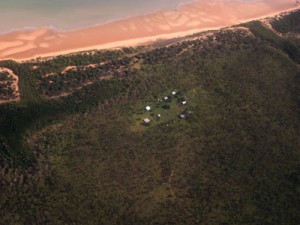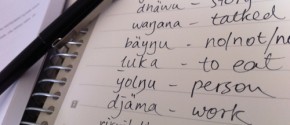For those of you new to the working with remote Aboriginal communities, the term “homeland”, may not make sense. We would like to offer some explanation, as homelands are so vital to empowering Yolngu across Arnhem Land, and other Indigenous people living on Aboriginal land.
In a practical sense, homelands are like small villages that are varying distances from the main community centres. Government often refer to them as “outstations”. People living on their homelands are often living on their traditional home or estate. These are places that they own or they have significant rights to under the traditional systems of law. Generally people on homelands have more control over their own lives. Not surprisingly they have better health outcomes, there are far fewer social problems such as substance abuse, and homelands with schools have excellent attendance.
In most remote indigenous communities the population made up of people from many clans. Traditionally each clan had its own estate. When the missions first formed, people moved off their traditional lands and were required to live together in one place. Although unintended, this has created many complex problems.
The best way to understand the significance of a homeland to Yolngu people, is to hear it from them. Below is one Yolngu lady’s explanation of her connection to her homeland.
“We Yolngu people are connected to our ancestral estates like a tree is rooted deeply into the soil. When the roots of a tree and the soil recognise each other, the roots will grow ever deeper and stronger, and the tree grows strong and bears good fruit.”
“The missionaries pulled us up by the roots and placed us in the mission and onto soil that was foreign. Our roots could not grow into the mission soil, that soil does not recognise us, and our roots do not recognise that soil. Our roots would only stay in the surface soil. A tree may stay alive on unfamiliar and alien soil, but it will not find nourishment, it will be stunted and will not bear good fruit. We can be only strong and independent on our homelands; not in the mission; not in the “town”.
This was shared in a Yolngu Matha (language) class at CDU in Darwin. The Yolngu studies lecturer John Greatorex has shared his thoughts on homelands in an excellent document available at http://blogs.crikey.com.au/northern/2009/09/08/what-is-a-homeland-one-white-insider%E2%80%99s-view-a-guest-post-from-john-greatorex/
Johns reflections come from a wealth of experience and intimate connection with Yolngu people over the last 30 years. The above quote has been taken from his article, with permission.



